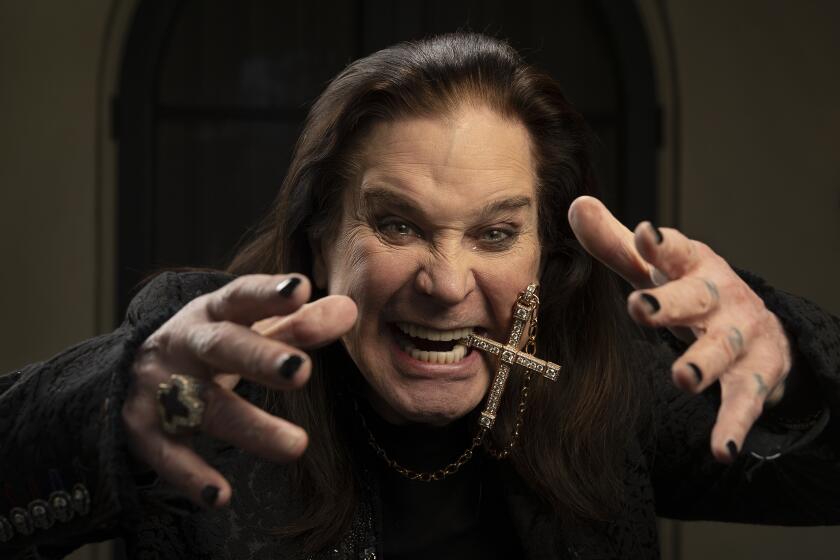‘Providence’ Offers Tricky Intellectual Pursuit
- Share via
If you’ve never sat around a college dorm room in the wee hours swilling cheap wine and conversing about the nature of the universe, you’d be better off skipping Michael Moriarty’s philosophically messy but intriguing one-man show “A Special Providence” at the Matrix.
Considering the attrition rate at intermission, many may find Moriarty’s headlong rant frustrating. However, those who stick with it for the duration may also find his intellectual perambulations strangely stimulating. Trying to follow Moriarty’s elusive logic is a bit like trying to sculpt quicksilver--you may never obtain a cohesive result but the process itself fascinates.
Subtitled “Tale to Be Told by an Actor,” this is also a tale to be told by a musician, which Moriarty is. A jazz pianist, Moriarty lends an improvisational cadence to his piece, which he has been performing and developing for more than eight years. Peripatetic monologues on subjects as diverse as the power of words, artistic materialism and the beauty of Florence take on the rhythms of prolonged jazz riffs--sometimes dissonant, sometimes soaringly melodic.
“Providence” combines elements of classical theater, contemporary music and philosophical debate with a heavy dose of “follow your bliss” spirituality. It’s difficult to catch the whole gist of Moriarty’s inchoate plot, which revolves around the relationship between four characters and defies anything but the roughest description.
The most vibrant of Moriarty’s beautifully rendered creations is William Shakespeare, an egocentric ghost whose aphoristic wit remains undulled by time. A self-satisfied dilettante in the afterlife, Shakespeare is suddenly haunted by Amelia, his fickle courtesan lover in life and the mysterious Dark Lady toward whom his latter sonnets were directed.
Amelia is accompanied by her offspring Francis, a one-eyed, bearded grotesque whom Amelia insists is Shakespeare’s great-great-etc. grandson. The two accompany the reluctant Shakespeare on a mission to assist the play’s living protagonist, Ernest, an aspiring actor whose frustrated striving for artistic meaning may destroy him.
Accompanied by his imperfect spirit mentors on a trip to Florence, Ernest experiences an epiphany of pure beauty that is unfortunately misinterpreted as madness by his friends and “treated” with electroshock therapy. In the process, Shakespeare experiences his own epiphany, cauterizing his own emotional wounds through accepting the primacy of self-love. The psychically benumbed Ernest, on the other hand, maintains that it is only through love of God that he will experience salvation.
Moriarty’s provocative but underdeveloped dialectic never achieves synthesis. Indeed, because of his propulsively high-energy delivery, we miss many of his points altogether. However, if one of Moriarty’s scattershot conceits flies over your head, let it pass. Rest assured that, whatever conclusions you may ultimately draw (if any), this challenging melange of ideas will keep your synapses firing on all cylinders.
* “A Special Providence,” Matrix Theatre, 7657 Melrose Ave. Monday-Wednesday, 8 p.m. Ends Wednesday. $27.50. (213) 852-1445. Running time: 2 hours.
More to Read
The biggest entertainment stories
Get our big stories about Hollywood, film, television, music, arts, culture and more right in your inbox as soon as they publish.
You may occasionally receive promotional content from the Los Angeles Times.










